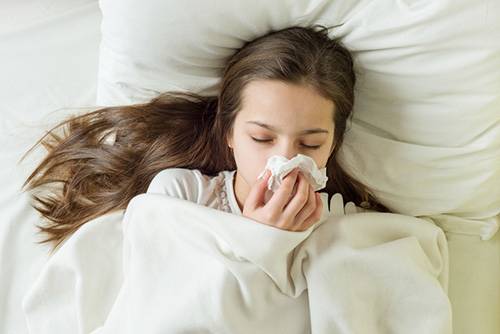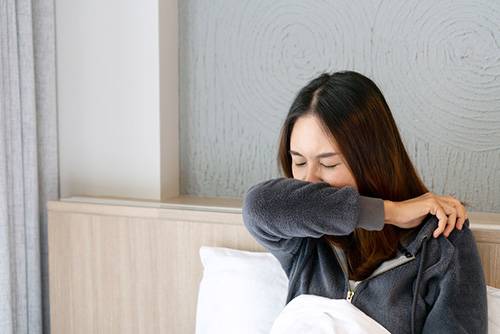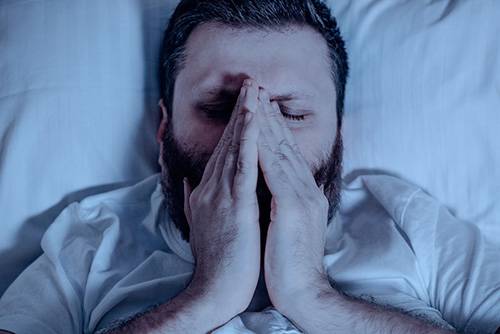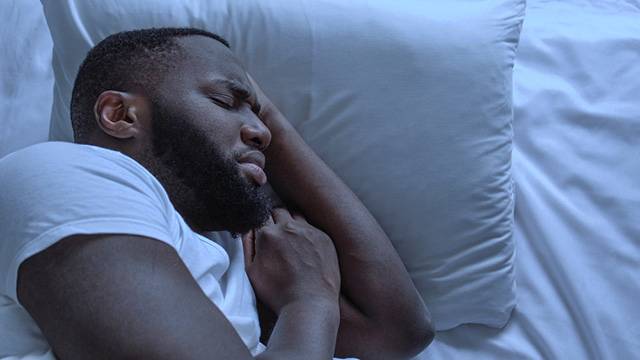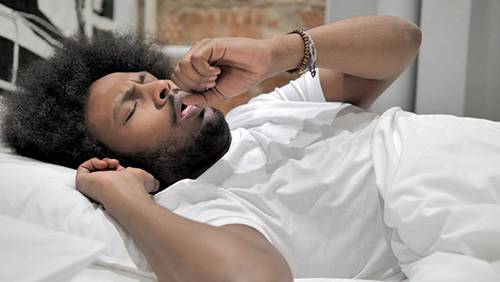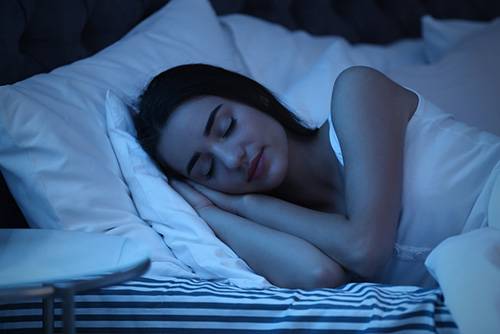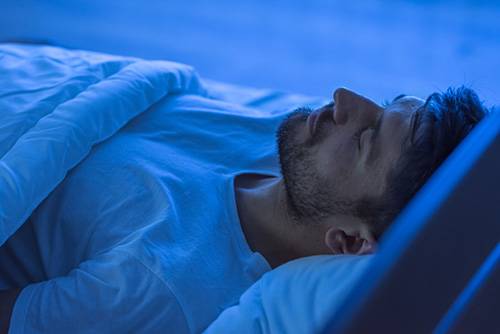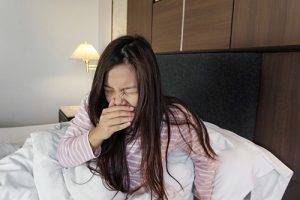
Unlike breathing, sneezing is an act that is done while your mind is still conscious, and not on autopilot like it is when it is performing necessary functions, like breathing. Technically, you have to be awake in order to sneeze, but what being awake is can differ from person to person based on that individual’s brain function.
What Causes a Sneeze?
To start with, it’s necessary for the body to sneeze. Sneezing can help your body get rid of harmful allergens such as dust and pollen and prevent these types of allergens from entering your body through the nose and mouth. This can sometimes even prevent harmful viruses from entering the body, but usually, sneezing is a result of actually having a virus such as the cold or flu. Sneezing when having a cold or flu are common but sneezing while sick is also a common factor in how viruses are able to spread. That’s why it’s so important to cover your sneeze with your hands, a tissue or even sneeze in a jacket or shirt in order to prevent your virus germs from being projectile all over the place, potentially getting other people around you sick.
Sneezing is a biological response to help you clear your nose. Invading particles, such as animal dander, bacteria, dirt, dust, mold, perfumes, pollen, smoke and viruses can make you really sick if they enter into your lungs, so once these particles get caught in your nose, you body reacts by sneezing.
Brain Activity
Whether or not you are even asleep or whether or not you sneeze is dependent on your brain activity. It is thought that you can’t really sneeze while you are asleep mostly due to the nerves that help you sneeze within your nasal cavity. When your brain is asleep, these nerves are also asleep, so while you may have felt something trigger your sneeze response in the day, at night, when you are asleep, your brain can still feel these triggers but not respond. It’s like your whole body shuts down and your nerves get some well-deserved rest so your body can start to repair.
If you are in the lighter stages of sleep, such as the beginning stages of sleep where you may start to drift off but never actually fall into deep sleep, it is common to be able to sneeze as your nerves in your nasal cavity are still awake. In short, if you feel like you have to sneeze or if you actually sneeze, you are not technically asleep, or you weren’t in a state of deep sleep. Sneezing will only happen if you are in a light state of sleep or if you are in the process of waking up. Pretty interesting, huh?
REM Sleep
According to the science, you cannot cough or sneeze during deep REM (Rapid Eye Movement) sleep. However, if you are in a light sleep or your body enters a state of wakefulness, as brief as it may be, you can definitely sneeze and feel like you were asleep. Again, everyone’s sleep cycle will differ from the last person’s, so it really depends on how light a sleeper you are or how long you stay in that deep REM sleep cycle.
The REM sleep cycle is where your body really repairs itself as you have entered the deepest part of sleep that you can. This is the cycle that enables you to dream vividly and it’s the most important cycle of your entire sleeping session as it helps muscles repair, helps bones strengthen and allows your body a time to reset in order to feel refreshed and good to go the next day. As complicated as this REM sleep cycle may sound, it’s incredibly important to the body and it has to happen every night in order for the body to function properly the next day.
Other Functions that Don’t Happen When You Sleep
To keep this interesting read going, there are actually quite a few other natural body responses that do not happen when you are in that deep REM sleep cycle. Functions such as hiccups, feeling hungry or thirsty or having to use the bathroom actually don’t happen when you are in a deep sleep cycle. How many times have you woken up in the middle of the night having to pee after downing your sleepy time tea before bed? Technically, it wasn’t the urge of having to pee that woke you up, you were already awake or waking up on your own.
It’s not uncommon to do things like coughing at night, but also, you wouldn’t technically be in a deep REM sleep cycle yet. If you have the urge to cough, your body wasn’t fully asleep, or you were slowly starting to wake up. When you’re sick especially, or for anyone who has allergy issues or issues with asthma, you may think that the urge to cough wakes you up in the middle of the night, but you were never asleep to begin with. It’s a huge misconception that things like coughing and sneezing will actually wake you up from a deep sleep when in fact, you were never really resting to begin with. At least not the deep rest that is needed to start to repair your body for the next day.
The Importance of Sleep
It’s no secret that sleeping is super important to help your body repair itself and stay healthy, but if you are actually sleeping enough at night then your risk of catching illnesses, such as the cold or flu, will actually lessen the risk factor. Basically, the more sleep you get the more powerful your body’s responses will be to ward off harmful things from entering your body. It may be hard to feel like you are actually resting sometimes, as life tends to be so busy and mental issues such as anxiety and depression can lessen your likelihood of falling into a deep sleep, but it’s so important to try to allow your body to get the most sleep possible in order to be an overall healthier person.
Not only for the health benefits, but we’ve all been there where we didn’t get enough sleep the night before and end up feeling awful all the next day. It’s not a good feeling and if this happens to you often, it can result in bodily harm, as well as preventing you from being present in your job responsibilities or even with your own family. In order to help yourself get good sleep, try setting up a sleep time for yourself each night and follow it to the number. For example, 11 p.m. seems to be a common sleep time for a lot of people, so if you set this time, then follow that time to go to sleep even if it’s the weekend. Just like setting a time, following this strict routine is also essential in helping promote better sleep and getting plenty of rest. Also getting rid of a television within your room and putting your phone away an hour before bedtime will also help your brain start to wind down as you are limiting all distractions that could keep you from sleep. These are just some helpful hints to help you fall into that essential REM sleep cycle and give your body the well deserved and essential rest it needs to properly function the next day. Not to mention, you’ll feel amazing after a decent night’s rest.
You might be interested in: The Best Nasal Spray for Bedtime
The Wrap Up
Overall, and technically speaking, you can only sneeze when you are awake. Sneezing is not possible when you are in that deep REM sleep cycle because your body will not recognize or respond to the triggers that would normally cause sneezing. That’s why these other functions that we discussed, such as coughing or having to use the bathroom at night, won’t happen either unless you are in a state of wakefulness. As you may think you are a sleep cougher or sneezer, you weren’t actually enough asleep to block these bodily responses from happening.
The more you understand your body and how it works and why some functions happen, the better informed you can be about your daily life. It’s important to sneeze during the daytime or the hours that you are awake in order to clear your sinuses of harmful allergens from entering your lungs. When you are asleep, however, your body should enter a deep state of rest that will cut these urges off in your brain to keep you asleep for longer. Pretty interesting? Now that you know for sure, you can go tell all of your friends and interesting new facts you learned today.
Photo credit: Sunisa Kanphian/Shutterstock; VH-studio/Shutterstock;
Opat Suvi/Shutterstock; AA.Shkob/Shutterstock; GUA5/Shutterstock;
RollingCamera/Shutterstock; New Africa/Shutterstock
